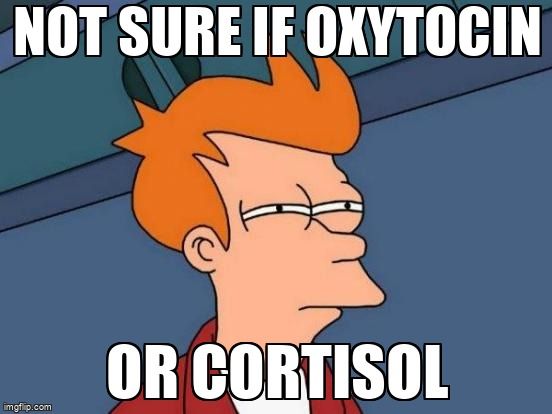
This logo isn't an ad or affiliate link. It's an organization that shares in our mission, and empowered the authors to share their insights in Byte form.
Rumie vets Bytes for compliance with our
Standards.
The organization is responsible for the completeness and reliability of the content.
Learn more
about how Rumie works with partners.
Have you ever wondered why you feel hungrier after eating something sweet? Or why your heart races when you watch a scary movie?

Hormones are chemicals that influence how you feel and how your body functions. They send messages throughout your body via the bloodstream to your organs and tissues. These messages give your body important instructions to help maintain key functions.
Of the 50+ hormones in your body, insulin, cortisol, serotonin, and oxytocin have critical effects on your health.
Insulin

What it does:
Insulin is produced by your pancreas. When insulin gets secreted, it helps your body use a certain amount of glucose — or sugar — found in the foods you eat as energy, and store the remainder.
How it affects you:
Low insulin levels in your blood will cause a high glucose (or blood sugar) level, which can make you feel hungry and/or thirsty.
When insulin levels are high, you might gain weight because insulin suppresses lipolysis, a process that helps your body break down stored fat.
When your fat and liver cells have difficulty responding to insulin. This is called insulin resistance, which causes your pancreas to produce higher and higher blood sugar levels.
This can have negative effects on your health like frequent urination or wounds that take a long time to heal. You can develop skin or vaginal infections, or even conditions like Type 2 diabetes.
How you can balance insulin:
Regular exercise is one way to improve insulin sensitivity, allowing the insulin in your body to act more efficiently and help control your blood sugar levels.
A healthy diet that's low in carbohydrates and high in whole grains, fruits and vegetables, fish, and lean meats can also help with weight control.
Did you know?
Cortisol

How it affects you:
Makes you energetic
Makes your heart race
Makes you feel anxious
How it affects you:
Makes you energetic
Makes your heart race
Makes you feel anxious
Serotonin
What it does:
Serotonin helps your brain regulate moods, sleep, and digestion. It also plays a role in the brain's learning processes and memory formation.
How it affects you:
Makes your moods stable
Makes you sleep well
Makes you learn well
Oxytocin
What it does:
Oxytocin helps you fall in love and plays a role in breastfeeding, childbirth, and social bonding.
How it affects you:
Makes you feel connected
Makes you love your partner
Makes you love your children
Apply What You've Learned
Billy is at the zoo and sees a wild elephant ferociously charging in his direction. Even though the elephant is behind a fence, this stresses Billy out and increases his cortisol levels.

Quiz
What could Billy do to lower his cortisol levels?
Taking deep breaths can lower your cortisol levels when you feel stressed.
Take Action

Practice guessing what hormones are influencing people next time you watch a movie or see people on a first date.
If you feel your hormones may be out of balance, talk to your doctor.
Interested in learning more?
This Byte has been authored by
Paul Borkowski
Helping to make learning easy, accessible, and fun
This Byte has been reviewed by
Lana Do
MD, MPH, BCMAS

